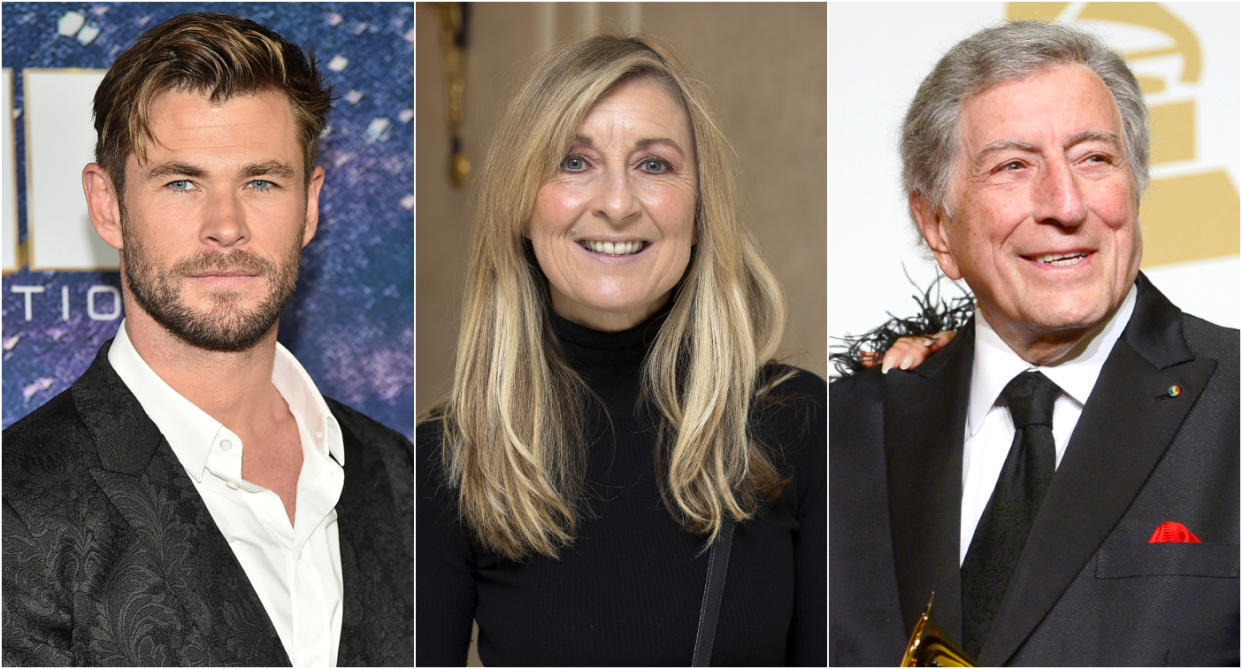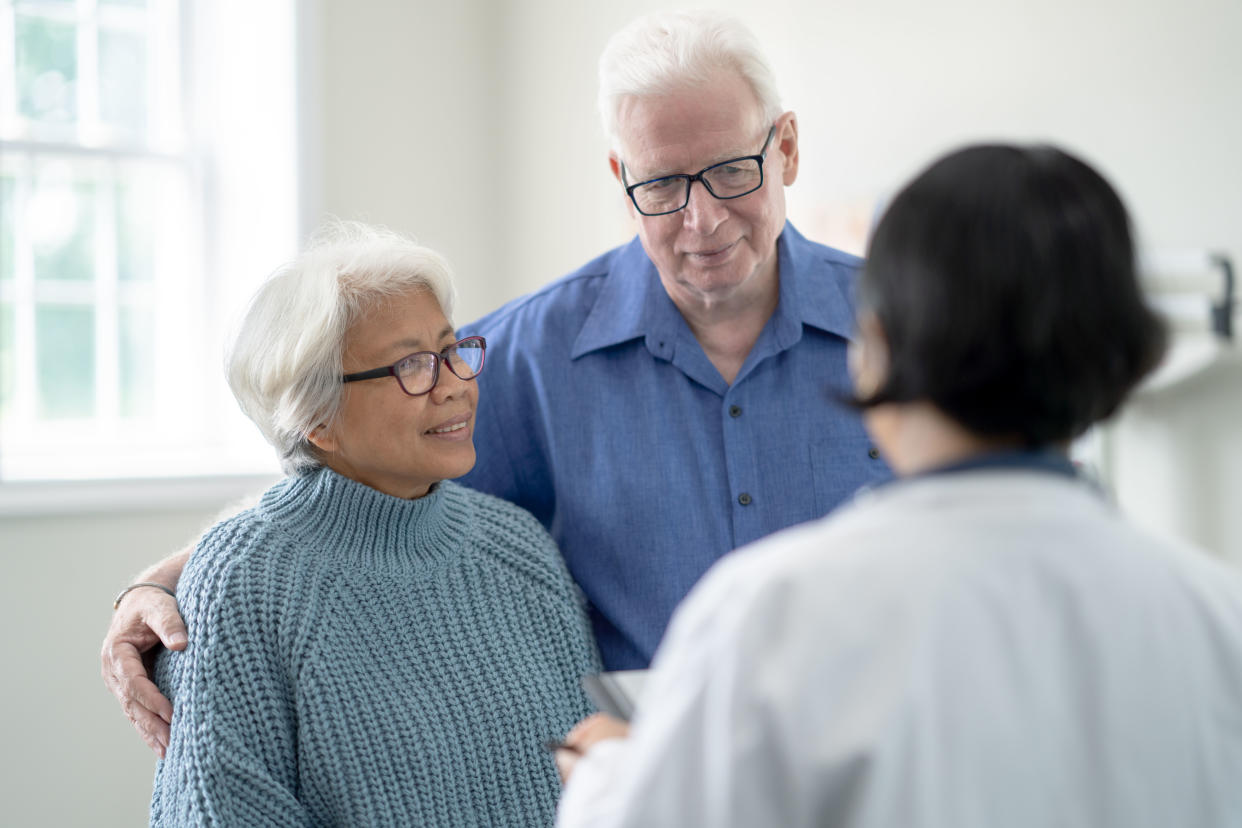Anne-Marie Duff calls Alzheimer's 'particularly unfair disease' as she discusses brother's diagnosis

Anne-Marie Duff has discussed her brother's Alzheimer's diagnosis, describing it as a "confusing time" for the family and labelling the disease "unfair".
The Bad Sisters star was appearing on This Morning to talk about the Memory Walk she will take part in with the Alzheimer's Society next month.
She tells presenters Josie Gibson and Steve Jones how her older brother, Eddie, was just 40, when she noticed his behaviour had changed.
"It was just small things, which I think is quite common with any age of dementia," Duff says before going on to share how she noticed her brother would struggle with making a cup of tea or completing other everyday tasks.
"Or he might get lost somewhere he wouldn't normally get lost," she continues. "And then he lost his job, he just couldn't keep his job."
Duff explains she initially sent her brother to a therapist as she thought he was suffering from a mental illness.
It was years later before the family got the formal diagnosis that Eddie, now 53, was suffering from a rare form of dementia called early-onset Alzheimer’s.
Though she describes receiving the diagnosis as being "a big old day" she adds that it was "a relief, in a weird way, as we have some answers".
Duff went on to urge anyone going through anything similar with a family member to ask for help.
"Help is out there," she says. "Also reach out to family and friends. And try and take a timeout for a cup of tea or something and get somebody to give you that break. It's very important."
Duff isn't the only celebrity to share their own experiences of Alzheimer's and dementia recently.
Earlier this year Fiona Phillips, 62, revealed that she had been diagnosed with Alzheimer’s disease, while singer Tony Bennet died from the condition in July this year, aged 96.
Actor Chris Hemsworth, 39, also revealed in 2022 that he had a significantly heightened risk of developing Alzheimer’s disease as he possesses two copies of the gene ApoE4. Only 2 to 3% of the population have this gene which makes them 10 time more likely to develop Alzheimer’s.

What is Alzheimer's disease?
Alzheimer's disease is a type of dementia and is steadily increasing in the UK. It currently affects around 850,000 people, or one in every 14 people aged 65 and over.
The Alzheimer's Society estimates that the number of people with dementia will rise to 1.5 million by 2040.
Alzheimer's is the most common cause of dementia in the UK, which is the name for a group of symptoms associated with an ongoing decline of brain functioning, according to the NHS.
This can impact memory, thinking skills and other mental abilities.
Potential causes of Alzheimer's disease
While a specific cause isn't known for certain, risk factors are thought to include:
Increasing age
Family history of the condition
Untreated depression
Lifestyle factors associated with cardiovascular disease (affecting the heart or blood vessels)
It is most common in older people, affecting roughly one in 14 over 65 and one in six over 80. That said, around one in 20 experience it under 65, known as early or young-onset Alzheimer's disease.
As Alzheimer's is progressive, symptoms develop gradually over the years and become more severe.
Alzheimer's disease: Read more
New drug can reduce Alzheimer's disease symptoms by up to 35% (Sky News)
Daily brisk walk or bike ride 'may reduce older people's risk of Alzheimer's (Yahoo Life UK, 5-min read)
Five lifestyle choices that cut the risk of Alzheimer’s identified by scientists (Yahoo Life UK, 3-min read)
Fiona Phillips explains why she hid Alzheimer’s diagnosis from her children (Independent, 3-min read)
Alzheimer's disease symptoms
The first sign of Alzheimer's is often minor memory problems, like forgetting about recent conversations or events, or the names of places and objects.
More developed and severe symptoms, according to the health service, include:
confusion, disorientation and getting lost in familiar places
difficulty planning or making decisions
problems with speech and language
problems moving around without assistance or doing self-care tasks
personality changes, such as becoming aggressive, demanding and suspicious of others
hallucinations, and low mood or anxiety
Can you prevent Alzheimer's disease?
A recent presentation at the American Heart Association’s Basic Cardiovascular Sciences Scientific Sessions 2023 said that a new vaccine that targets inflamed brain cells could be the key to preventing Alzheimer's.
There are also some lifestyle factors that are thought to reduce or delay the onset of dementia, as well as benefit your overall physical and mental health. These include:
stopping smoking
cutting down alcohol
eating a healthy, balanced diet
maintaining a healthy weight
staying physically fit and mentally active
With memory problems often seen as a normal part of growing older, preventing people from recognising changes about themselves, signs can often be overlooked.
But an accurate and early diagnosis can help give you the best chance to prepare and plan for the future and receive treatment and support.

So, if you're worried about your memory or possible dementia, or have noticed symptoms in someone else, don't delay in speaking to a GP or encouraging and helping them to.
While there's currently no cure, medicines can help to relieve symptoms and support is out there to help make your everyday life easier.
More information on Alzheimer's disease
For more information on Alzheimer's and treatment, visit the NHS website.
You can also see our useful guide on what other types of dementia there are.
Get support and advice by calling Alzheimer's Society on 0333 150 3456, or other info lines that might be more accessible to you.
Watch: Fiona Phillips is suffering from Alzheimer’s


